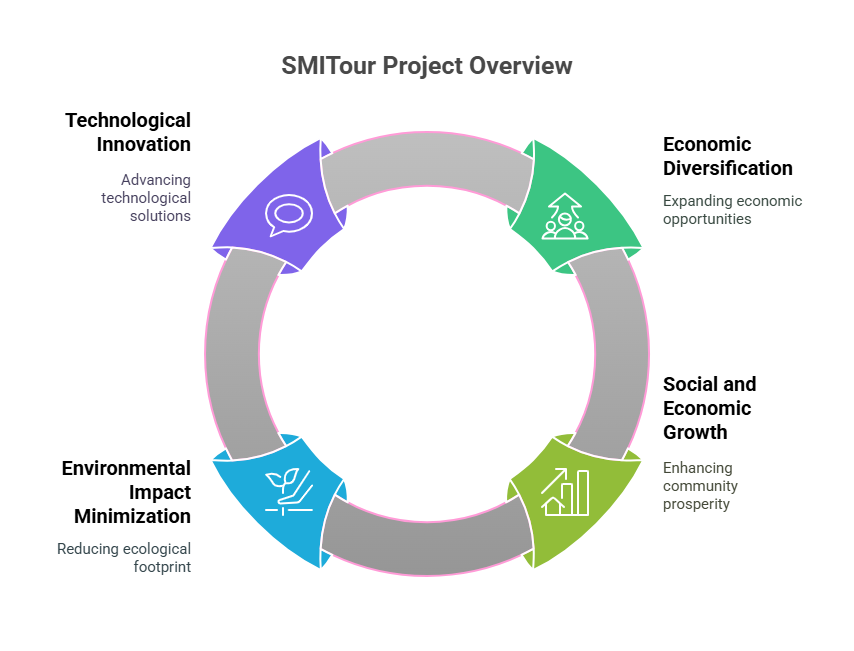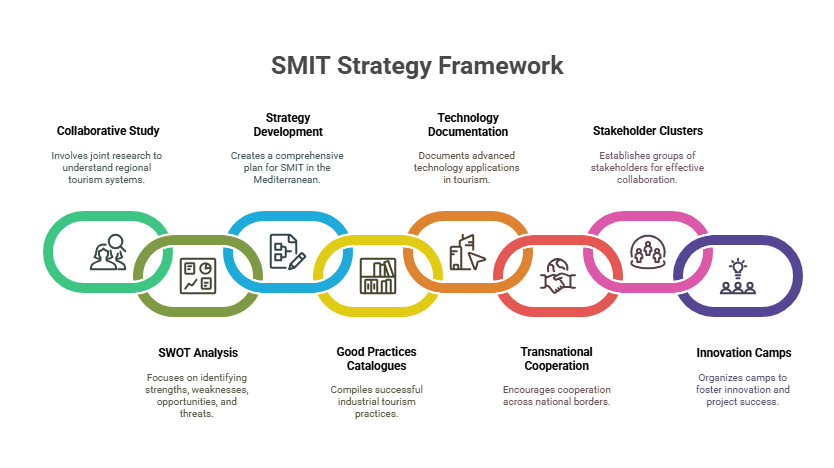
What we do
The COVID-19 pandemic highlighted the urgent need to reimagine Mediterranean tourism, shifting towards more sustainable and diversified practices like industrial tourism. This niche offers a unique opportunity to boost local economies and integrate advanced technologies for richer visitor experiences.
The SMITour Project directly addresses this by developing new Smart Industrial Tourism (SMIT) activities. Our goal is to drive economic diversification, foster social and economic growth, minimize environmental impact, and spur technological innovation.

We achieve this through leveraging partner expertise, engaging regional stakeholders in transnational Focus and Working Groups via Innovation Camps, and fostering new business models through entrepreneurial discovery.

The SMITour Project focuses on three core areas of action:
State of the Art Analysis:
We’re analyzing Smart Industrial Tourism (SMIT) potential in partner regions, assessing tourism systems, Good Practices (GPs), and advanced technologies. A joint SWOT analysis will highlight opportunities for diverse stakeholders, guiding the design of new SMIT activities.
SMIT Development Strategy & Action Plan:
We’re crafting a comprehensive SMIT strategy for the Mediterranean via an Entrepreneurial Discovery Process. This involves engaging 4-helix stakeholders in Innovation Camps and transnational Focus & Working Groups to co-design solutions for specific challenges.
Result Amplification & Mainstreaming:
Our goal is to standardize methodologies, amplify results, and promote the widespread adoption of our SMIT strategies. By engaging decision-makers, we aim to drive tangible changes and integrate solutions across target areas, emphasizing outcomes and policy implications.

